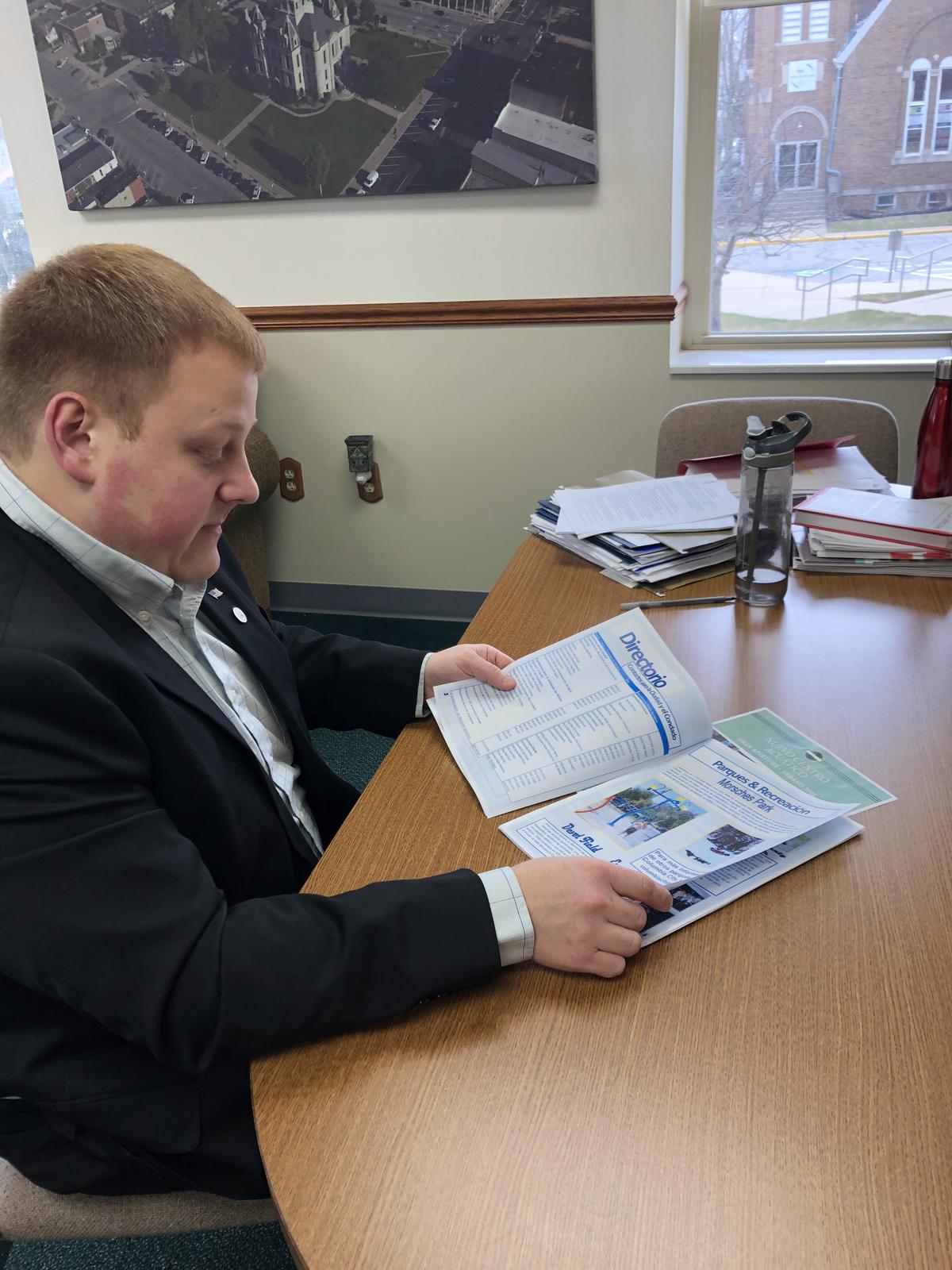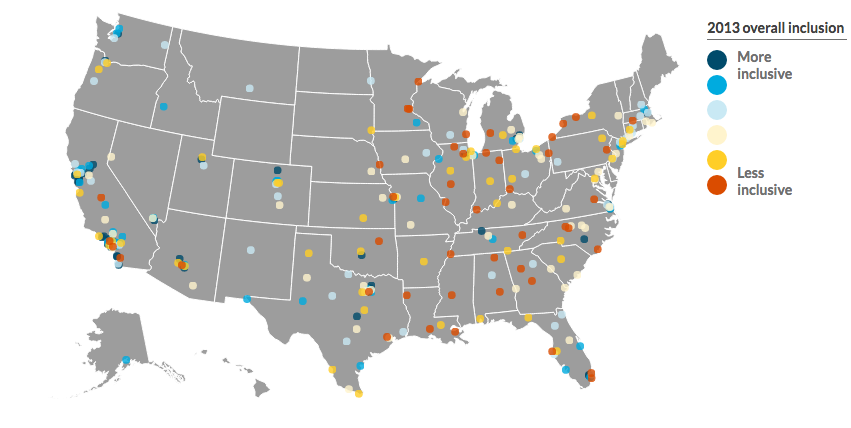 From this story, a classic piece of music emerged. The family, fleeing religious persecution in Russia in 1893, was soon reunited and allowed to enter the country. And that little boy, born Israel Beilin, would grow up to become Irving Berlin. Twenty-five years after emigrating, the same year he became an American citizen, he composed “God Bless America.”
From this story, a classic piece of music emerged. The family, fleeing religious persecution in Russia in 1893, was soon reunited and allowed to enter the country. And that little boy, born Israel Beilin, would grow up to become Irving Berlin. Twenty-five years after emigrating, the same year he became an American citizen, he composed “God Bless America.”
New immigration detention centers proposed for Indiana, other Midwest states
 INDIANAPOLIS — Companies and local governments have proposed building new immigration detention centers in Minnesota, Michigan, Illinois and Indiana, responding to a request from Immigration and Customs Enforcement officials stepping up arrests in the center of the country.
INDIANAPOLIS — Companies and local governments have proposed building new immigration detention centers in Minnesota, Michigan, Illinois and Indiana, responding to a request from Immigration and Customs Enforcement officials stepping up arrests in the center of the country.
The proposals, most by for-profit corrections contractors, were submitted to ICE after it put out a request in October for detention sites near Chicago, Detroit, Salt Lake City and St. Paul, Minnesota. ICE disclosed the proposals in response to a Freedom of Information Act request by the National Immigrant Justice Center, which provided the information to The Associated Press.
What Americans totally misunderstand about immigration, in one chart
Immigration may be at the center of the American political debate, but a new Harvard University study shows Americans are missing a crucial piece of information.
Generally, people believe that immigrants are poorer, more dependent on welfare, and more numerous than they really are. That’s according to study published last month by the National Bureau of Economic Research, based on a 2018 survey in six developed countries.
Respondents in all of the countries held strong misconceptions about immigrants and their contributions to society, according to the poll’s results. But the discrepancy between perception and reality was particularly striking in the United States.
One example: On average, US respondents estimated that immigrants made up 36% of the US population. That is more than three times the real share of immigrants in the country, which is 10%.
Hoosiers Participate In National Immigration Protests
 Hundreds of activists gathered in at the Monroe County courthouse Saturday as part of a national movement to condemn the Trump administration’s immigration policy.
Hundreds of activists gathered in at the Monroe County courthouse Saturday as part of a national movement to condemn the Trump administration’s immigration policy.
Speakers addressed the crowd about issues ranging from the travel ban that bars people from primarily Muslim nations, from coming to the United States, to ending immigrant family detention.
Gavin Everett, with the City of Bloomington Commission on Hispanic and Latino Affairs, says he’s concerned about those children who have already been separated from their parents.
Immigration Attorney Explains Zero Tolerance Policies
Hundreds of thousands of people are expected to gather this weekend to protest the “zero tolerance” immigration policies put in place by the Trump administration.
Children are no longer being separated from their parents, but more than 2,000 children are still being held in facilities across the. And many people are still upset with the crackdown at the border.
Immigration attorney Christie Popp joined WTIU’s Joe Hren on Indiana Newsdesk to explain the ongoing debate.
Indiana needs a hate crime bill
Indiana has a dubious commonality with Arkansas, Georgia, South Carolina and Wyoming. It is one of only four states that have no statutes criminalizing various types of bias-motivated violence or intimidation.
In a recent “Lunch With the League” presentation, Dr. Anita Joshi, who has practiced pediatrics in Crawfordsville for more than 20 years, made a clear case for the need of such legislation in Indiana.
Five myths about the refugee crisis
Myth 5: History is repeating and there’s nothing we can do about it
The Holocaust is never far from the surface of European consciences. And its presence has been felt in a range of responses to the refugee crisis – from grand political statements about Europe’s duty to act, to the invocation of the Kindertransport in Britain’s debate over child refugees, to stories about elderly Jewish Europeans helping today’s displaced migrants cross borders. But it can lead us to a Schindler’s List interpretation of history – the one dramatic moment of rescue that either averts disaster, or absolves us of a greater crime.
Small Indiana City Feels Aftermath Of Hurricane Maria
 Warsaw-based Zimmer Biomet is located about 29 miles west of Columbia City. They also have a plant in Puerto Rico. After Hurricane Maria, Zimmer asked some of their Puerto Rican employees if they would relocate to plants in the continental U.S., like the one in Warsaw.
Warsaw-based Zimmer Biomet is located about 29 miles west of Columbia City. They also have a plant in Puerto Rico. After Hurricane Maria, Zimmer asked some of their Puerto Rican employees if they would relocate to plants in the continental U.S., like the one in Warsaw.
Local officials helped welcome the new residents but Columbia City Mayor Ryan Daniel had some concerns. When he heard the news, he worried about housing and whether the new residents would feel welcomed.
Group hopes to break barriers for Latino community
On the adults’ end, Rivas said, it’s not that they don’t want to learn English, but rather that classes don’t line up with their work schedules and family obligations. In a lot of cases, Rivas said, the adults know some English, but hesitate to use it in formal situations out of fear of being judged or misunderstood.
The discussions also showed a perception among Anglos that Latinos don’t value education or work promotions as much as Anglos. Rivas said that’s not the case. Rather, the issue is that Latino parents don’t understand the U.S. education system, having not grown up with it, and the language barrier can make it difficult to learn about it. For promotions, Latino workers would like to be promoted, but are often hesitant because of Latino cultural norms. Latino families, for example, value keeping the family together above personal success. That can lead younger Latinos to turn down promotions that could elevate their status above someone else in their family or necessitate a move.
The Most Inclusive U.S. Cities, Mapped
 One of their top-line findings: The ten cities faring the best on the inclusion metrics in 2013 were also flourishing economically. “There is a strong relationship between the economic health of a city and a city’s ability to support inclusion for its residents,” the authors write in the report.
One of their top-line findings: The ten cities faring the best on the inclusion metrics in 2013 were also flourishing economically. “There is a strong relationship between the economic health of a city and a city’s ability to support inclusion for its residents,” the authors write in the report.
In a time of widening inequality, the findings of this report provide a roadmap for a deliberate effort to mitigate the forces that have created unequal communities. The authors conclude:
As this research illustrates, not all cities have made intentional progress, and, for some cities, economic conditions changed and prosperity was more widely shared. However, sustaining this progress toward more shared prosperity requires intentional effort, transparency, and policies.
